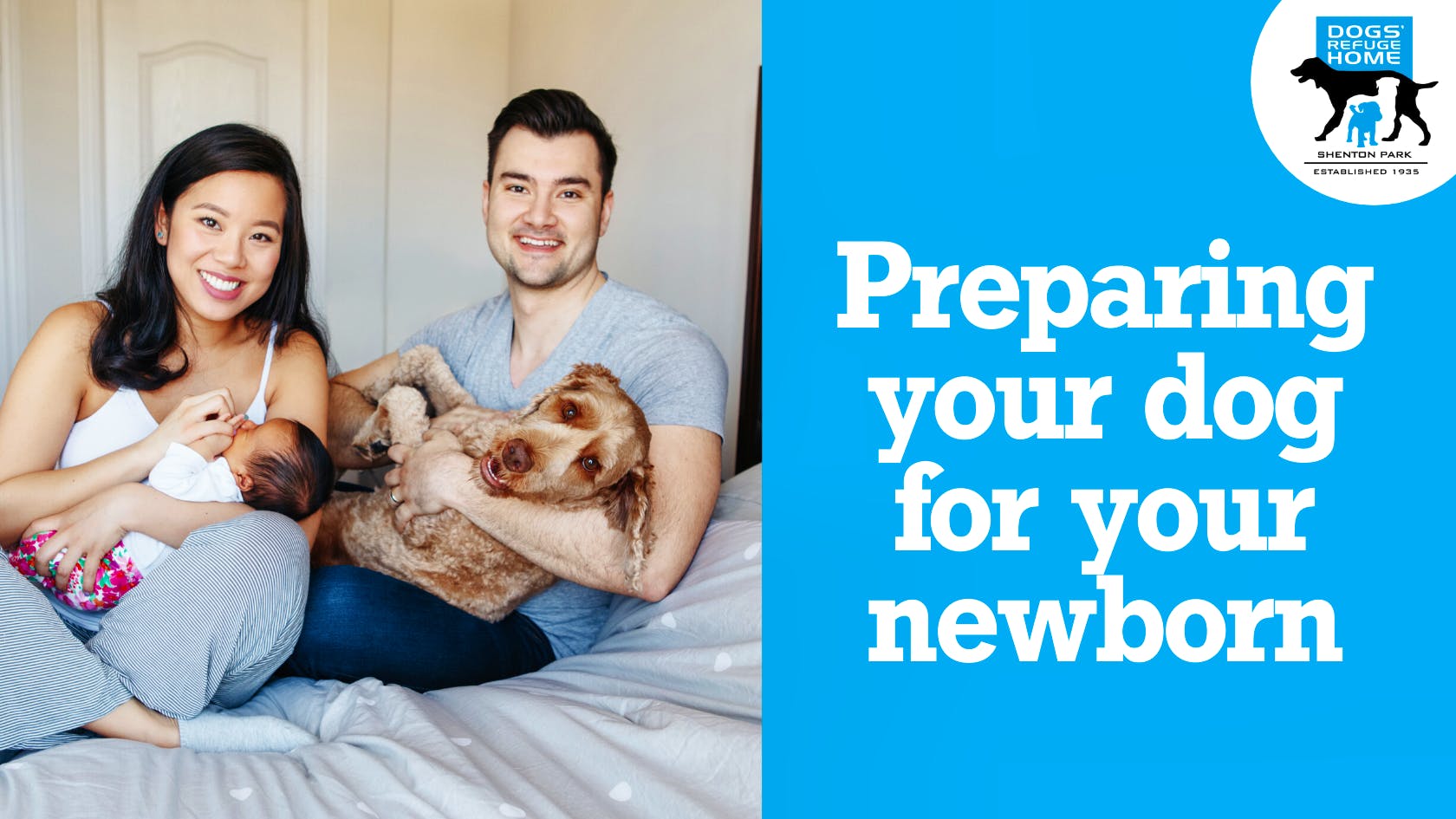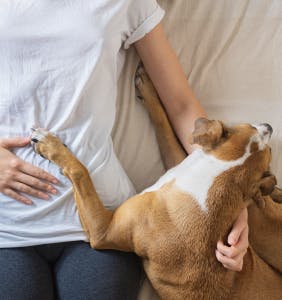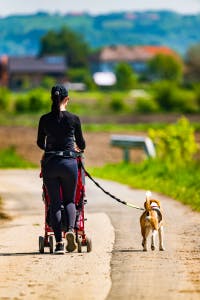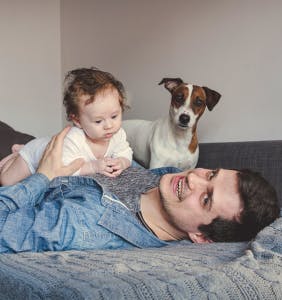
If you’re ready to welcome a new baby into your life and you’ve already got a beloved pooch, now is the time to start preparing your home and your dog for the arrival of your baby.

Sadly, each year many dogs are surrendered to pounds and shelters because owners are worried about the safety of their babies – and we understand these reasons. Adding to your family is a big step and it’s important both your child and your dog feel safe and content, so we’ve spoken to Perth-based Dog Trainer and Behaviour Consultant, Kathy Kopellis McLeod about practical ways new parents-to-be can prepare their four-legged friends for the arrival of a baby and to help expecting parents maintain a peaceful environment for both canine and bub.
Some dogs, almost instinctively just warm up to a child quite quickly, but some dogs may not feel as confident around children, so it’s very important to start preparing as early as you can.
SOUND THERAPY FOR DOGS

There’s no denying that your pooch will be hearing some pretty unfamiliar noises once your baby arrives, not to mention, a dog’s hearing is more highly developed than humans and they hear higher frequency sounds, so helping your dog familiarise themselves with some of the sounds they will be hearing in the future will help them feel more at ease when the baby arrives.
Kathy suggests playing baby noises over a sound system each day to help get them used to these noises.
“Dog’s aren’t easily fooled though, they can tell the difference between a real baby crying and a sound played over a sound system – but nevertheless, it’s a great step in the right direction and will help them adjust a little easier” – Kathy Kopellis McLeod
Kathy says if your dog is relaxed whilst you’re playing baby sounds and they don’t appear to be too bothered by the sounds, make sure you reward your dog – high-value treats are great for this and it lets them know that they’re responding appropriately to the sounds.
A great Youtube video for sound desensitisation is: https://www.youtube.com/watch?v=mwvSUQCiE34

Kathy mentions that once the baby has arrived, it’s very important that your dog still gets the attention they crave from you. It can be hard juggling life and everything parenthood brings, but drastic changes in your dogs routine can make them feel unsure of their current situation.
“If your dog is used to two walks per day, it’s best to keep up this routine. It’s also nice, once the baby has arrived to give your dog some extra TLC, to reassure them that the arrival of the new baby is a positive thing” – Kathy Kopellis McLeod
It’s also a good idea to bring home some items that smell like the baby. Let your dog have a sniff of the items and encourage calm behaviour. If your dog is gently sniffing, don’t forget to reward your pooch. It’s best not to leave these items with your dog unattended as they may decide to chew the item and this is something that we want to discourage.
INTRODUCING YOUR DOG TO THE BABY:
When introducing your dog to your newborn, Kathy suggests holding your baby snug in your arms and sitting at a dining chair or standing up. It’s best not to sit on a couch, as they’re generally lower to the ground and makes it easier for your dog to jump up. Bring your dog in on lead first at a distance – slow and steady is the best way, don’t rush your dog into this.
If you’re a bit unsure of your dog’s motivation, it’s important not to force interactions. Separate the dog and the baby for a while and then slowly introduce them again (with your dog on-lead). Kathy says that some dogs take to their new siblings like a duck to water, whereas other dogs need some reassurance and guidance and can take longer to adjust. Sometimes this means months of training to help your dog feel comfortable with their new member of the family.

Many of the behavioural cases Kathy sees are actually with toddlers. Toddlers are more mobile and can often invade your dog’s personal space, so it’s important to always monitor your children’s interactions with your dog. Many dog owners with tolerant dogs tend to think that their dog can handle their children quite well, but Kathy says that whilst some dogs are more tolerant than others, it’s never a good idea to push these boundaries. Teaching your children to respect your dog’s space is the responsible thing to do.
“In some cases, owners may feel that their dog is not going to adjust to their change in environment and in that case, before making any decisions, book a consult with a trainer to see if they’re able to assist any further.” – Kathy Kopellis McLeod
Lastly, if you come to the hard decision to re-home your dog, please contact a reputable rescue organisation. Re-homing your pets on Gumtree or online can potentially end up with your pets being neglected, abused or abandoned. We safely re-home thousands of dogs each year and have stringent adoption processes to make sure our dogs get the best homes possible.
For a confidential chat about our surrender process, please call us on 9381 8166 (Monday- Sunday) 10am – 4pm.
Information supplied by Kathy Kopellis McLeod:
http://www.kathysdogtraining.com.au
